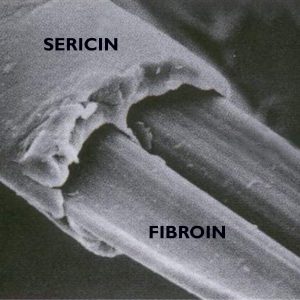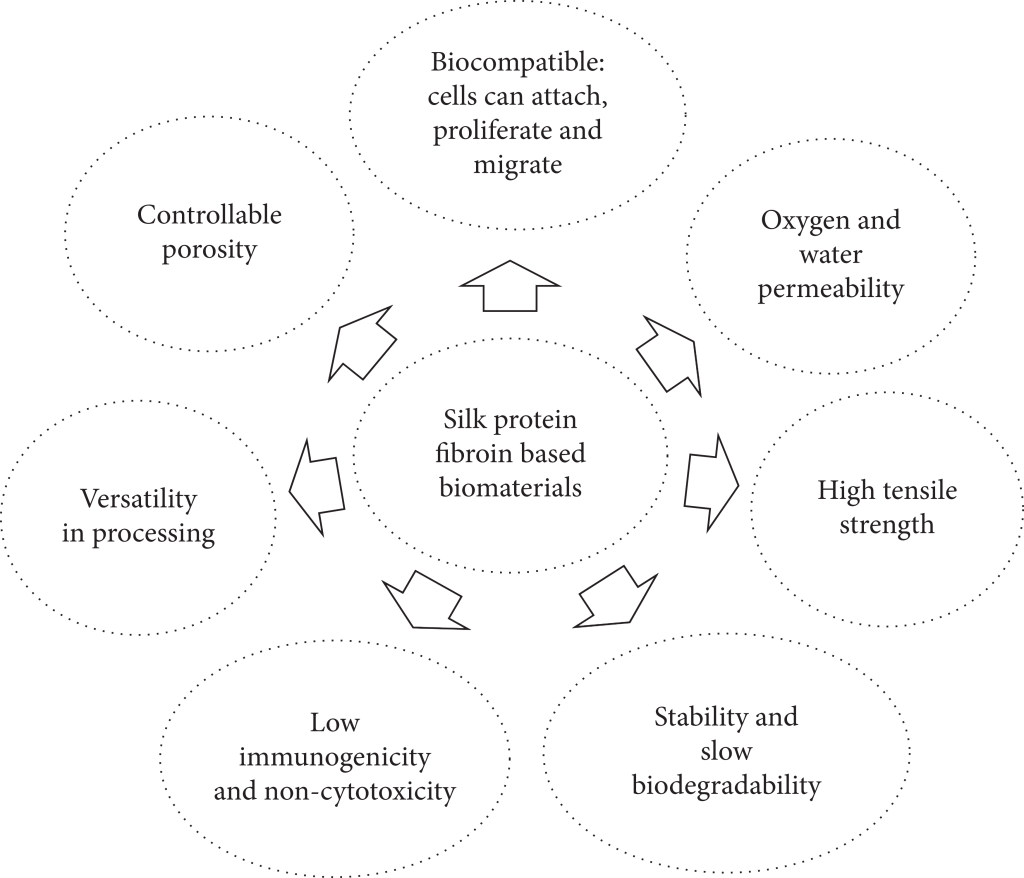Silk Fibroin
Natural proteinFibroin and sericin are the two proteins found in silk from the Bombyx mori silkworm. Silk fibroin serves as the inner core and gives mechanical strength, whereas sericin serves as the exterior glue-like coating. Two silk fibroin filaments are covered with sericin in each silk fibre.
Silk fibroin is the main protein of silkworm silk which makes up approximately 70% of cocoon weight. Silk fibroin filaments are made up of 3.5 nm diameter nanofibrils, which are the building elements of silk.
Silk fibroin protein is harvested from silkworm cocoon and is separated from sericin.

The two proteins found in silk
Silk fibroin’s properties
Silk fibroin is a natural protein has good biocompatibility, excellent mechanical and biological properties, composed by alanine, serine, and glycine in different percentages. These amino acids are the same ones that make up the stratum corneum.
Its particular structur has not been limited the use of silk fibroin to the textile industry but has been further extended to various application areas: biomaterials, technological, biomedical.

Source: M. Vidya and Senthilkumar Rajagopal “Silk Fibroin: A Promising Tool for Wound Healing and Skin Regeneration”
Silk fibroin has an incredible ability to modify in response to one’s biological place, which could lead to better integration and possibly less material-associated thrombosis. For this there are many applications in regenerative medicine.
Biomedical Applications
Silk fibroin has its role in medical treatments from ancient times.
Silk fibroin has been used for centuries as a suture thread due to its excellent mechanical properties and non-rejection by the immune system.
More recent, however, is the use of silk fibroin for the production of ultra-thin solid films and hydrogels in which to include pharmacological molecules, bioactive macromolecules such as enzymes or different types of cells.
“Very simply, silk supports cellular infiltration and proliferation. Cell just like to go near it. And any cell type will grow into it,” says David Kaplan, Ph.D, Chair, Biomedical Engineering – Tufts University School of Engineering, about silk protein biomaterials.
Silk fibroin is a tremendous biomaterial for a wide range of biomedical uses: for example drug delivery, regenerative medicine, tissue engineering (for bone and cartilages, blood vessels, urethra, wound healing and skin regeneration, skin tissue, etc and implantable devices such as artificial kidney, small vascular grafts, and scaffolds for vascular applications).
